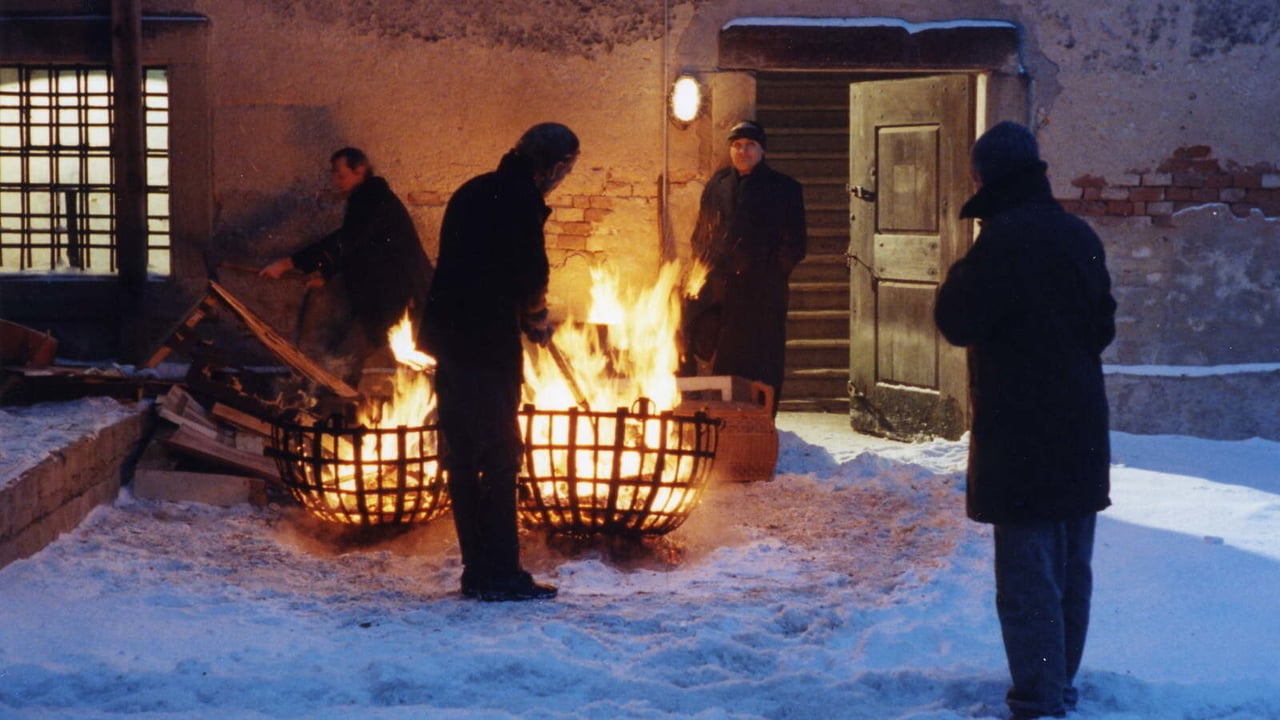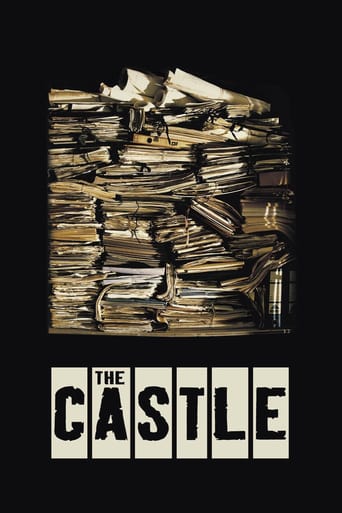

Good start, but then it gets ruined
... View MoreFantastic!
... View MoreThe movie is wonderful and true, an act of love in all its contradictions and complexity
... View MoreActress is magnificent and exudes a hypnotic screen presence in this affecting drama.
... View MoreThis, apparently was made for TV by Michael Haneke. After having seen "The Trial" and read pretty much all the works of Kafka, one comes to expect something. Unlike the former, the protagonist is given many options, but never seems as confused as Joseph K was. He seems to feel that his job as a land surveyor trumps virtually anything, even though he is obviously not wanted. He will betray, barge in on, and do anything with the strange people he encounters, including marrying one of them, to get to that Castle. But as is the case with the existentialists, his path is as much a part of the thing, cold and dank and full of trauma, as ever actually reaching the Castle. And, why should such a place need a surveyor anyway. This is a nightmare come to life. He meets his assistants, a couple of twin "boys" and they have no surveying equipment. They have no knowledge of surveying, and yet off they go. Or sort of. It is an endless tromp through snow and buildings and meetings with obstructionists. And so it goes.
... View MoreThe scenes generally play out as they do in the novel, including the gaps from the novel, Haneke's view of Kafka's satirisation of bureaucracy. In 'Das Schloss' Kafka is at his usual absurd and pessimistic yet still very realistic idea of the world and the state. Themes and archetypes of alienation, physical and psychological brutality, parent–child conflict, characters on a terrifying quest, and mystical transformations. In existentialism, the individual's starting point is characterised by what has been called the existential attitude, or a sense of disorientation and confusion in the face of an apparently meaningless or absurd world. This is the film of the unfinished novel. It expertly captures the abject, horrifyingly ridiculous, paranoia existentialist view of Kafka. A land surveyor named 'K' is invited to the Castle to do some work for a Count, but when he arrives at a Village where he finds that nobody is expecting him. K's attempts to get into the Castle are as unsuccessful as his attempt to settle into the local village. Greeted but not welcomed by a collective reluctance from the villagers, who with a systematic inefficiency prevent him from any prospects of even approaching the castle. The harder the stubborn K tries, the more he moves from his goals. You never see either the Count or indeed The Castle. The whole series of events is shot during winter with a grainy effect - possibly as a result of a TV transfer to DVD. The film was originally made for Austrian TV. The film ends as the book does - unfinished. The late Ulrich Mühe and Sussane Lothar are exceptional. With respect to perhaps Orson Welles, this film could not be made by mainstream Hollywood - they wouldn't know what to do with it! Although the film is certainly not for everyone, perhaps for Haneke fans only.
... View MoreThis film is certainly not for everyone. Maybe for Haneke completists only.It is based on one of Franz Kafka's three novels, and it can basically be described as a satirization of bureaucracy.K (Ulrich Mühe - Georg in Funny Games) arrives for a job and is met with resistance. The next day two assistants arrive (one is Artur (Peter from Funny Games). K spends most of his time trying to get into the castle to do the work he was hired to do, but it seems he isn't needed.He takes up with Frieda (Susanne Lothar - Anna from Funny Games, and the midwife in The White Ribbon).From here it is surreal and confusing. He bounces from official to official never really getting anywhere.Haneke and Kafka were made for each other.
... View MoreThis is an extremely unusual adaptation of an unfinished novel. The breaks in Kafka's manuscript are actually left in the movie. This is surrealism to the max!
... View More